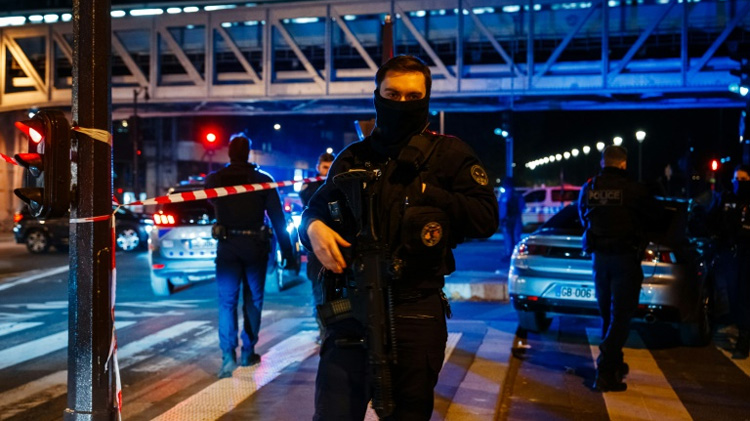“Terrorist Plot” Probe After Deadly Paris Stabbing
A man known to French authorities for radical Islamism with mental health troubles stabbed a tourist to death and wounded two other people in central Paris late Saturday night before being arrested, with prosecutors opening an investigation into a suspected “terrorist plot”.
The attack close to the Eiffel Tower around 9:00 pm (2000 GMT) during a busy weekend came with the country on its highest alert, as tensions rise against the background of the war between Israel and Hamas.
Prosecutors specialising in terrorist incidents told AFP they had opened a probe into the attacker, named as Armand Rajabpour-Miyandoab, a French national born in 1997 to Iranian parents who was arrested soon after the knife and hammer attack.
They suspect him of murder against the 23-year-old dead man, identified as a German-Filipino citizen by a judicial source.
He will further be probed for attempted murder against the two wounded people, a 66-year-old British citizen and a 60-year-old French national, “in connection with a terrorist plot”.
Rajabpour-Miyandoab, known to authorities and in treatment for mental illness, shouted “Allahu Akbar” — Arabic for “God is greatest” — at the moment of the attack, Interior Minister Gerald Darmanin said at the scene by Bir Hakeim bridge over the River Seine.
The suspect, who lived with his parents in the Essonne region south of Paris, told police he could not stand Muslims being killed in “Afghanistan and Palestine” and accused France of being “an accomplice to what Israel is doing” in the Gaza Strip, Darmanin added.
Saturday’s attack drew responses from the highest level of the French state.
“We will not give in to terrorism,” Prime Minister Elisabeth Borne wrote on X, formerly Twitter, after the attack.
President Emmanuel Macron said he was sending his condolences to the family of the man killed in the “terrorist attack”.
‘Unstable and easily influenced’
Police and security sources confirmed that the attacker had posted a video claiming responsibility to social media at the moment of the attack, speaking about “current events, the government, the murder of innocent Muslims”.
Investigators will look closely at his medical history, a security source told AFP, calling the attacker “very unstable and easily influenced”.
“Was he medically monitored as he should have been, as indeed he had been for some time?” a police source said.
Darmanin said the man had already been sentenced in 2016 to four years in prison for planning another attack in Paris business district La Defense, which he failed to carry out.
A taxi driver who witnessed the scene intervened, Darmanin added, saving the wife of the victim. The attacker then crossed the bridge, lashing out at others and injuring one with a hammer.
Pursuing police used a taser to neutralise the man, who was then arrested.
Macron, writing on X, thanked security forces for their quick arrest of the suspected attacker and said justice should be served “in the name of the French people”.
‘Help, help’
Joseph S., 37 years old, a supermarket manager who asked not to give his last name, witnessed the scene as he sat in a bar.
He heard screams and people shouting “help, help” as they ran. A man wielding a hammer attacked a man who had fallen down, and within five to 10 minutes the police arrived, he told AFP.
The country has suffered several attacks by Islamist extremists, including the November 2015 suicide and gun attacks in Paris claimed by the Islamic State group in which 130 people were killed.
There had been a relative lull in recent years, even as officials have warned that the threat remains.
But tensions have risen in France, home to large Jewish and Muslim populations, following Hamas’s attack on Israel on October 7 and Israel’s bombardment of the Gaza Strip.
Security in Paris is also under particular scrutiny as it gears up to host the 2024 Summer Olympic Games.
In October, teacher Dominique Bernard was killed in the northern French town of Arras by a young radicalised Islamist from Russia’s Caucasus region.

